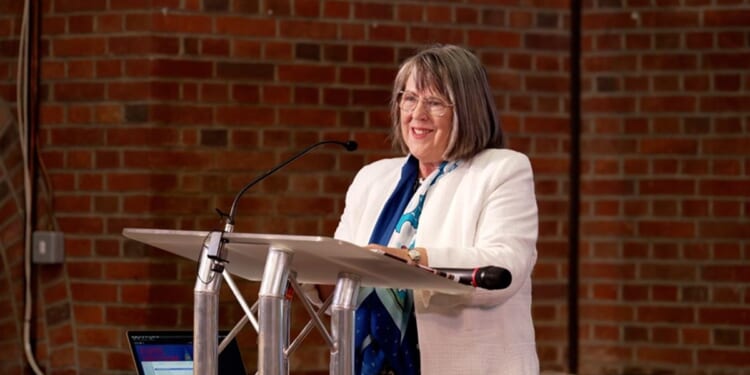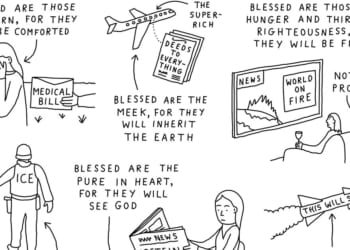A DECLARATION that “Christian truth and values” belong at the heart of public life in the UK has been launched in the hope that it will attract 100,000 signatures and trigger a debate in Parliament.
The 2025 Westminster Declaration, launched last week, argues for the importance of heterosexual marriage and the “complementarity of men and women”. It also offers warnings about “cancel culture” and artificial intelligence (AI) unchecked by moral reflection.
“By ignoring Britain’s Christian heritage we have endangered human life, weakened society, and created a fragmented nation uncoupled from its formative traditions, and without a unifying vision for its future,” the declaration says.
On marriage, which it defines as being between a man a woman, the declaration calls for a rejection of “ideologies which weaken family ties by falsely claiming that other types of relationship are of equivalent value to marriage”.
It also suggests that schools are “promoting various lifestyle and sexual ideologies”, and upholds parents’ right to withdraw their children from “teaching which conflicts with [the parents’] beliefs and values”.
“Group think” and “cancel culture” are referred to as “mortal threats” to university education; and the development of AI, though described as “morally neutral”, should, the declaration says, be overseen by an “inter-disciplinary body to include Christians trained in moral thinking and decision making”.
The declaration also upholds freedom to express religious beliefs, and condemns abortion and assisted dying, describing the latter as “contrary to Christian belief, and alien to a civilized society”.
Supporters are invited to sign the 2025 Westminster Declaration online, but no list of signatories has been published yet. Among the prominent speakers at the launch in the Emmanuel Centre, Westminster, on 20 September were the theologian and Anglican priest Lord Biggar; the former MP and Prime Minister’s Special Envoy for Freedom of Religion or Belief Fiona Bruce; and a retired army officer, Major-General Tim Cross.
The chair of the steering group, Mgr Michael Nazir-Ali, is a former Bishop of Rochester, now serving as a priest in the Roman Catholic Church.
He was also one of the “key signatories” to a previous version produced in 2010, along with the former Archbishop of Canterbury Lord Carey, and the RC Archbishop of St Andrews & Edinburgh, Cardinal Keith O’Brien. Other signatories included the Rt Revd Nicholas Reade, a former Bishop of Blackburn; the Rt Revd Keith Sinclair, a former Bishop of Birkenhead; the Rt Revd Wallace Benn, a former Bishop of Lewes; and the Rt Revd Michael Langrish, a former Bishop of Exeter.
In all, the original declaration attracted more than 70,000 signatures. According to an archived version of the original website, those who signed were subscribing to the belief that “protecting human life, protecting marriage, and protecting freedom of conscience are foundational for creating and maintaining strong families, caring communities and a just society”.
In a statement last week, Mgr Nazir-Ali said: “In 2010 leaders from across the Christian traditions first released the Westminster Declaration. Rapid developments since then have made it clear that it is time to renew this call.”
The three tenets of the original declaration remain in the new version, but attention is now also given to education, gender, and AI.
There are some differences: the new declaration does not say, as its predecessor did, that marriage between a man and a woman is the “only context for sexual intercourse”.
The new section on human life also contains more detail, with reference to specific court rulings, though it does not refer explicitly to the Terminally Ill Adults (End of Life) Bill, currently before the House of Lords (News, 22 September).
The declaration’s stated purpose does, however, say that “some of the choices made by Parliament and others in authority about the nature of human life, family relationships, sex education in schools, end-of-life care, and the use and development of new technologies are having serious consequences.”

















